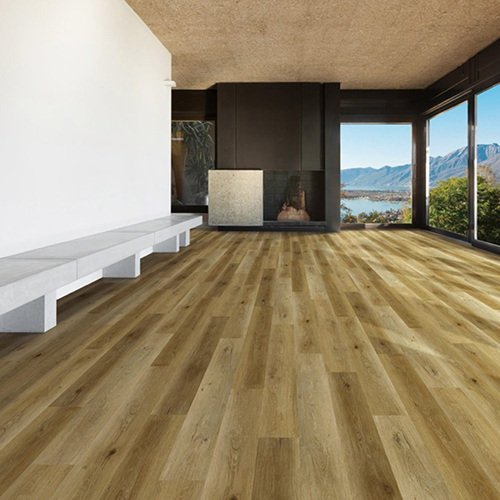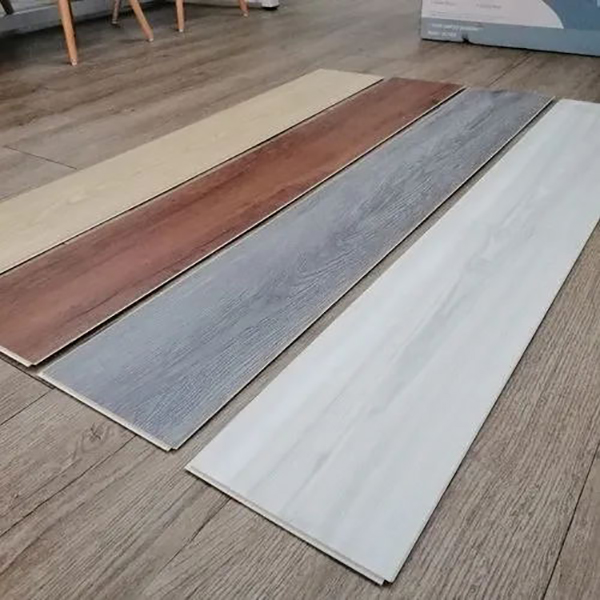Blogs
Differences between LVT and SPC Flooring


Composition and Durability:
LVT: LVT is softer due to its vinyl core. While it's resistant to dents and chips, it might not stand up against heavy impacts like SPC.
SPC: The rigid core of SPC gives it unparalleled strength. It's almost indestructible and can withstand heavy foot traffic, making it ideal for commercial spaces.
Feel Underfoot:
LVT: LVT offers a softer and warmer feel underfoot, akin to traditional vinyl.
SPC: Due to its rigid core, SPC feels harder underfoot, which might be less comfortable for some users.
Thermal Conductivity:
LVT: LVT provides moderate insulation and can retain warmth, making it a cozy option for colder regions.
SPC: SPC doesn't retain heat as effectively as LVT, but its dense nature makes it ideal for underfloor heating systems.
Water Resistance:
LVT: While LVT is water-resistant, prolonged exposure to moisture could cause warping or damage.
SPC: SPC boasts a 100% waterproof core, making it a top pick for kitchens and bathrooms.
Installation:
LVT: Installation of LVT might require an underlayment, depending on the product. It can be installed using a glue-down method or a floating method.
SPC: SPC often comes with an attached underlayment, streamlining the installation process.
Its rigid nature can span over imperfect subfloors, hiding minor imperfections.
Environmental Impact and Sustainability:
LVT: While LVT products improve environmental friendliness, consumers should check for FloorScore or similar certifications to ensure minimal VOC emissions.
SPC: SPC's core contains natural limestone, making it more eco-friendly. Many SPC products also carry environmental credentials.
Cost:
LVT: LVT varies in price based on quality, but it's generally affordable, making it a cost-effective option for those eyeing high aesthetics on a budget.
SPC: SPC might be pricier than standard LVT due to its enhanced features, but given its durability, it offers excellent value for money.
Conclusion:
When choosing between LVT and Spc flooring, one isn't categorically better than the other; it boils down to individual preferences and specific needs. LVT might be the way to go if you're looking for a softer feel with warmth. If unparalleled durability and water resistance top your list, consider SPC.
In any case, LVT and SPC floors offer the beauty of natural materials without their associated costs or maintenance demands. So, evaluate your requirements, budget, and the characteristics of each flooring type to make an informed decision.
RELATED NEWS
- How to Choose a Reliable SPC Flooring Factory 2025-10-13
- SPC Flooring vs Laminate Flooring 2025-07-30
- SPC vs LVT Flooring 2025-06-24
- What makes SPC Rigid Core Flooring is smart choice 2025-01-08
- Spc Vinyl Floor Samples feedback from USA customers 2024-11-13
CATEGORIES
LATEST NEWS
CONTACT US
Contact: Senoinfi Flooring
Phone: 8617763599241
E-mail: senoinfi@yeah.net
Add: Industry Park, Developmzne Zone,Liaocheng City,Shandong Province,China
